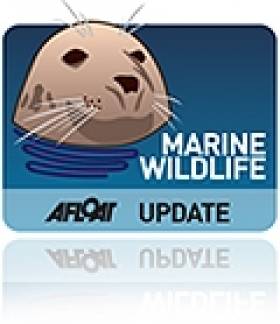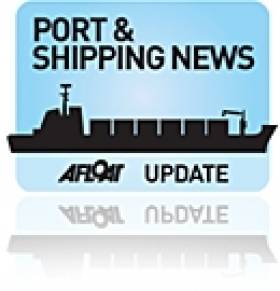Displaying items by tag: Cape Clear
New Season of Summer Whale Watching Courses on Cape Clear
#MARINE WILDLIFE - The Irish Whale and Dolphin Group (IWDG) has announced another series of its popular whale watching courses on Cape Clear in West Cork this summer.
The courses cater for adults keen to learn more about whales and dolphins in Irish waters and how to observe, record and identify them. They will feature a mixture of workshops and field trips, including cliff and boat-based whale watches.
Three weekend courses will take place on 25-27 May, 20-22 July and 7-9 September, led by IWDG sightings co-ordinator Pádraig Whooley. All are open to IWDG members and non-members alike, but places are limited to 20 places each weekend on a first-come-first-served basis.
Admission is €70 for IWDG members (€90 for non-members), with a non-refundable deposit of €25 required. Please note that this fee does not cover transport to Cape Clear, food or accomodation (which is limited in high summer) or any boat trips. As the itinerary will be weather-dependant, some flexibility will be required.
More information on the weekends and booking details are available at the IWDG website HERE.
In other IWDG news, the group has secured another grant from the Island Foundation to continue its humpback whale research in Cape Verde this spring and summer.
A shore-based team will be stationed in Boa Vista in an area that is "possibly the most important site for breeding humbacks in the entire northeast Atlantic".
Cape Clear Ferry Service Awarded
The ferry service contract for Cape Clear in Co. Cork has been awarded to the company, Thar Tonn Teo.
The 'Island Princess' will be used as the main vessel for the service from the middle of March 2011 onwards. The boat 'Tranquility' will be used until then. The contract will come into effect from February 1st 2011 and will be operational for eight years until 31st of January 2019. The contract is worth €2.65m in total.
This contract was awarded as a result of a competitive tendering process that was initiated by the Department of Community, Equality and Gaeltacht Affairs. As he announced the winning contract, the Minister Pat Carey said, "I am very pleased that a long-term agreement has been put in place which will ensure that the people of Cape Clear have a ferry service in the years to come and I wish the new service every success."


























































